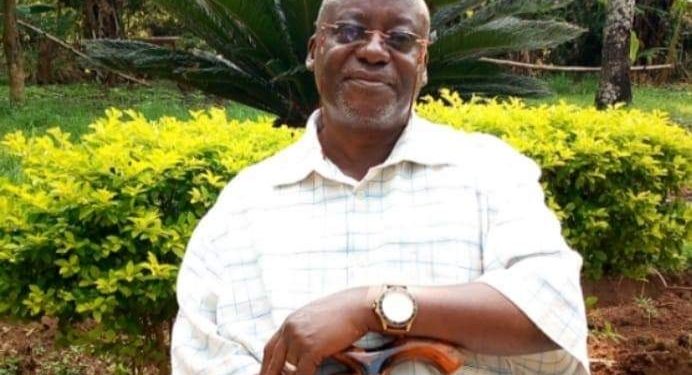In his influencial book “Untapped: The Scramble for Africa’s Oil” published in 2007 in Orlando, Austin, New York, San Diego, Toronto and London by Harcourt Inc., John Ghazvinian writes that the entire Continent of Africa is believed to contain, at best 10 percent of the World’s proven oil reserves. He say s that despite the small percentage African oil reserves constitute of the global reserves of oil, global oil magnates and actors in the oil industry are interested in the African oil more than the Middle East oil.
The reasons are many and include:
1. The quality of African oil is high because it tends to be light and sweet; meaning it is viscous and low in Sulphur, and therefor easier to refine than Middle East crude, which tends to be lacking in lower hydrocarbons, and is, therefore, very sticky ( p. 9).
2. Africa is almost surrounded by water, which significantly transport related costs and risks (p.10).
3. Most SubSaharan African countries operate on the basis of so-called Production Sharing Agreements (PSAs). In these arrangements, a foreign oil company is awarded a licence to look for petroleum on condition that it assumes the upfront costs of exploration and production. If oil is discovered in the block , the oil company will share the revenues with the host government, but only after it’s initial costs have been recouped (PAs are generally offered to impoverished countries that would never be able to amass either the technical or the billions in capital investment required to drill for oil themselves (p. 11) But for the oil company , a relatively small upfront investment can quickly turn into untold billions in profits ( p.11).
4. With the Exception of Nigeria, none of the oil producing countries of SubSaharan Africa has belonged to the organisation of Petroleum Exporting Countries (OPEC)>Thus they have not been subject to the strict limits on output OEC imposed on its members in an attempt to keep the prices of oil artificially high…if new reserves are discovered in Gabon, it means more cheap oil for everybody (p.11).
5. ——-Virtually all the big discoveries of recent years have been made offshore, in deepwater reserves that are often many miles from populated land. This means that even if a civil war or violent insurrection breaks out onshore (always a concern in Africa)the oil companies can continue to pump out oil with little likelihood of sabotage , banditry or natianalist fervour getting in the way. Given the hundreds of thousands of barrels of Nigerian crude that are lost every year as a result of fighting, community protests, and organised crime, this is something the industry gets rather excited about (p.11).
6. There is the sheer speed of growth in African oil production, and the fact that Africa is one of the world’s last underexplored regions. —One third of the world’s new oil discoveries since the year 2000 have taken place in Africa. Of the 8 billion barrels of new oil reserves discovered in 2001, 7 billion were found (in Africa). In the years between 2005 and 2010, 20% of the world’s new production capacity was expected to to come from Africa (p.11,12).
What all this means is that African oil is cheap, , safer, and more accessible than other oild
It is against this background that talk and explorations of oil in Uganda and globally emerged in relation to the oil of the Eastern Rift Valley towards the end of the first decade of the 2nd Millennium. However, the talk and explorations of the oil were limited to Presidential circles. The President kept on saying he had discovered oil and that the oil was his. This to many Ugandans came as a surprise, but continentally speaking rulers such as did Santos of Angola, Nguema Mbasogo of Equatorial Guinea and Bongo of Gabon practically personally owned the oil in/of their countries. it did not benefit the broad masses of the people.
The question is: Should Ugandans be celebrating the oil in the East African Margin of the Great Rift Valley m, in the Bunyoro?
Indeed many people celebrated when in 2006 Aussie independent Hardman Resources began drilling along the shores of Uganda’s Lake Albert. She’ll had drilled the last hole there in 1938. It is now clear that Uganda has joined the ranks of African oil producers. 60,000 barrels a day was expected. A Chinese firm is involved in the oil industry, but we ore China a lot of money in loans. The PSAs with the Chinese firm remain a secret in the true spirit of business confidentiality. It is unlikely the benefits of the oil will trickle down to Ugandans until The PSA has been actualised and China has got most of its loans paid via oli. It is, however, unlikely that the oil story will be different from the stories in Angola, Equatorial Guinea and Gabon, where the primary beneficiaries were (and in Equatorial Guinea and Gabon are) the members of the families of the Presidents. Most of the people running the oil industry are not far removed from the family of the President of Uganda, or else are ethnically related to him. This affirms that he did not lie when he insisted on saying that he had discovered the oil and that the oil is his. And I am saying he is not the first to convert a national resources into a personal possession. He is imitating dos Santos, Ngwema Mbasogo and Bongo.
Therefore, Ugandans should not celebrate oil yat.
For God and My Country
Do you have a story in your community or an opinion to share with us: Email us at editorial@watchdoguganda.com













